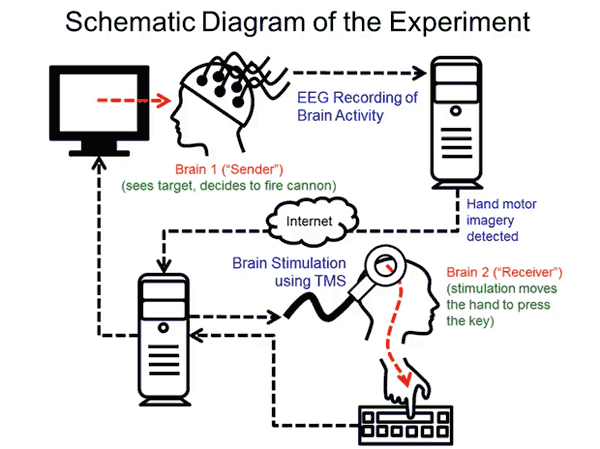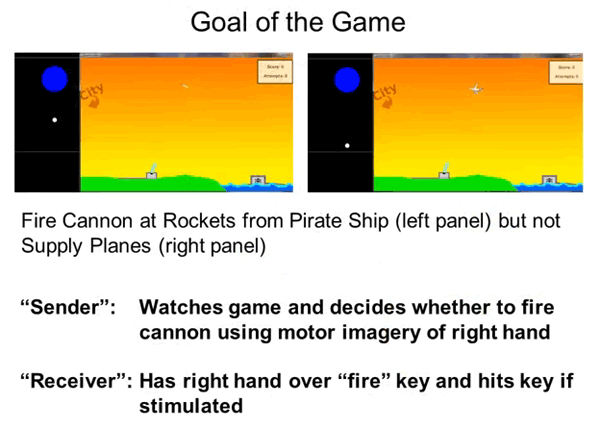Researchers from the University of Washington (UW) have demonstrated a non-invasive brain-to-brain interface that works both remotely and in real-time. In a UW blog post it is detailed how one researcher was able to send a brain signal, via the internet, to control the hand motions of another researcher.

The researchers working on this study are Rajesh Rao, a UW professor of computer science and engineering and Andrea Stocco, a UW research assistant professor in psychology. They decided to test and demonstrate the non-invasive interface on themselves as they sat in separate labs across the campus. The researchers both wore skullcap mounted electrodes, one hooked up to an electrical brain activity reader and another a transcranial magnetic stimulation coil respectively. This way thoughts from one researcher would cause movement in the other. The transcranial coil was placed directly over the part of Stocco's brain where hand movement is controlled.

To demonstrate the brain-to-brain control of another human Roa looked at a simple 'Missile Command' style computer game and played it in his mind. When an enemy target entered the range of his cannons Rao thought of firing the cannon, without actually moving, this caused Stocco at "almost instantaneously" hit the fire button.
Both researchers were video recorded and Stocco wore noise cancelling headphones and wasn't watching the game on the computer screen. The researchers said Stocco "involuntarily moved his right index finger to push the space bar on the keyboard in front of him" at Rao's bidding. Stocco said the feeling in his hand was similar to a nervous tick or spasm.
This is the first non-invasive human brain to brain control demonstration. The video above shows that what can be achieved right now is admittedly basic. However it is a good foundation to build upon and refine. Looking ahead the researchers thought that developing the techniques could help in cases such as; "help a flight attendant or passenger land an airplane if the pilot becomes incapacitated," or helping a disabled person "communicate his or her wish, say, for food or water".
Rao said people shouldn't get carried away and overestimate the scope of the technology. He said that the technology doesn't read people's thoughts, just certain simple brain signals. Also use of the technology won't allow you to control someone against their will.
The research team will continue with their project and the next step is to "transmit more complex information from one brain to the other" using a larger pool of subjects.













